Imagine the sun glistening on azure waters, children laughing as they splash around, and the general serenity of a seaside vacation, all in the convenience of your backyard. This idyllic image is often what new homeowners and experienced dreamers alike conjure when considering the addition of a swimming pool to their property. But, just like the rippling surface of that pool, there's a lot more beneath the tranquil exterior. For those dipping their toe into the vast waters of home ownership, or experienced homeowners looking to invest in their leisure time, understanding the depths of what it means to have a pool is crucial. Read on to dive into the essential considerations before you make the leap into becoming a pool owner—it’s not just about pool parties and relaxation.
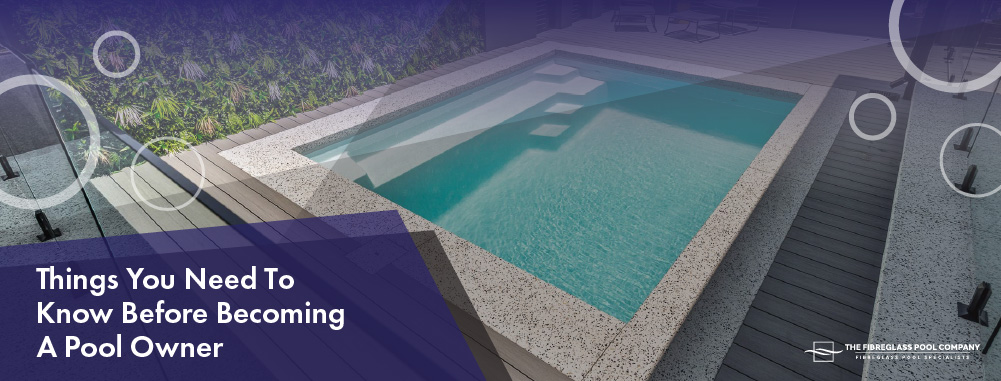
Owning a pool is both a luxury and a responsibility. You can have a private resort at your disposal, but you also commit to a significant element of care and cost. At the outset, it's crucial to distinguish between the romanticism of a personal oasis and the day-to-day reality of maintenance, safety, and environmental impact. While these responsibilities shouldn't dissuade you, they should inform your decision and planning.
Cost Considerations
The Initial Investment
The seemingly endless list of costs begins with the pool’s construction. Depending on factors such as size, location, and materials, you could be looking at a hefty initial investment. Beyond that, there are excavation fees, labour costs, landscaping, and any additional features you wish to include.
Long-Term Maintenance Costs
The cost of maintaining a pool can be a substantial part of your annual home expense. This includes a variety of factors like electricity for filtration and heating, chemical treatments, and regular professional inspections.
Unexpected Repairs and Replacement
Over time, parts of your pool may degrade or break, such as tiles needing replacement or the filter system needing an upgrade. It’s wise to budget for these unexpected expenses ahead of time.
Legal and Permit Requirements
Zoning Laws
Before you even break ground, you must ensure your property complies with local zoning regulations. These laws dictate the types of pools allowed, location on the property, and necessary fencing and enclosure specifications.
Permits
To move forward with building a pool, you’ll need to obtain the right permits. This safeguards you from legal issues and ensures your pool is compliant with safety and environmental standards.
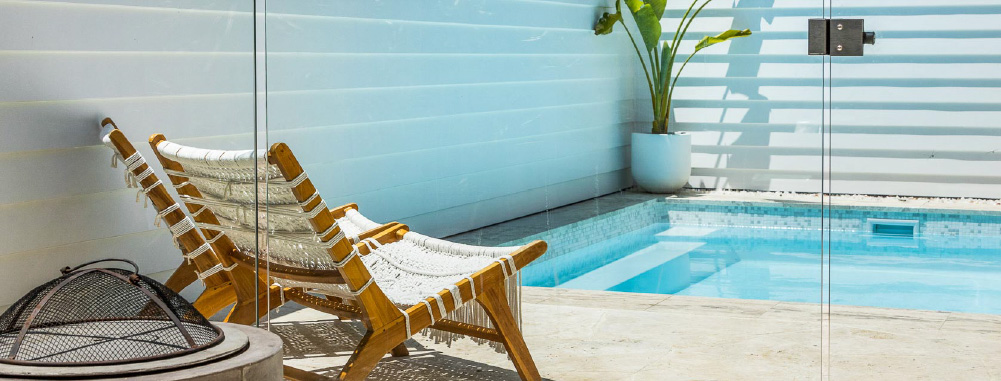
Safety Regulations
Once your pool is in operation, ongoing safety measures are not just good practice—they’re often mandatory. This can include everything from the style and height of your pool’s barrier to the presence of anti entrapment features on any drains.
Types of Pools
In-ground vs. Above-ground
Each type of pool comes with its unique set of advantages and limitations to consider. In-ground pools, known for their durability and aesthetics, represent a substantial long-term investment in your property. On the other hand, above-ground pools, being more budget-friendly, provide the flexibility of being relocated if needed, making them a versatile choice for many homeowners looking to enjoy the benefits of a pool without the permanence.
Materials
Pools can be constructed with a variety of materials, from traditional concrete to fibreglass and vinyl-lined structures. Each has different costs and maintenance needs.
Designs
The shape and style of your pool can transform it from a functional basin to a stunning backyard centrepiece. Work with a professional to bring your design vision to life, while keeping practicality in mind.
Maintenance and Upkeep
Cleaning
Regular cleaning is absolutely vital to maintain the safety and appeal of your pool. It’s crucial to skim the surface regularly to remove any debris, vacuum the bottom to keep it sparkling clean, and occasionally brush the walls to prevent the unsightly buildup of algae and other contaminants. By staying on top of these maintenance tasks, you can ensure that your pool remains a refreshing oasis for you and your guests to enjoy.
Chemical Balance
Understanding the chemistry of your pool is essential. Maintaining proper pH levels, ensuring adequate sanitation with chlorine or other chemicals, and controlling alkalinity all contribute to a healthy pool environment.
Seasonal Care
Your pool will require different levels of maintenance depending on the season. From winterising for cold climates to adjusting for heavy summer use, adapt your care regimen often.

Safety and Liability
Fencing and Enclosure
Most localities mandate that pool owners install a safety fence around their pool to prevent accidental drownings and ensure the well-being of unsupervised individuals. This requirement not only enforces legal compliance but also serves as a crucial safety measure to mitigate the potential hazards linked to swimming pools.
Supervision
Never underestimate the importance of supervision, especially when there are children around. Drowning is one of the leading causes of unintentional injury and death in children.
Insurance
Pool ownership can significantly affect your home insurance. Ensure you are adequately covered, not only for accidents but also for potential damages caused by your pool to your property or others.
Environmental Impact
Water Conservation
Pools can use a lot of water, and in areas prone to drought, this can be a significant concern. Consider water-saving features like covers, and explore options for using greywater.
Energy Efficiency
Modern technology presents a myriad of innovative methods to diminish a pool’s energy consumption. Embracing solutions such as solar covers, energy-efficient pumps, and LED lighting not only contributes to cost savings but also plays a vital role in lessening your environmental impact. By investing in these energy-saving options, you not only enhance your pool’s efficiency but also demonstrate a commitment to sustainable practices.
The decision to become a pool owner is a complex one, but with proper preparation and understanding, it can be incredibly rewarding. You can take ownership of your leisure time like never before, enjoying the health and mental benefits of having your personal venue for relaxation and exercise. Make sure to educate yourself fully on what it means to take care of this unique amenity, and always be mindful of the impacts it may have on your community and environment. A well-informed approach to pool ownership can lead you to many years of aquatic enjoyment.
Imagine the sun glistening on azure waters, children laughing as they splash around, and the general serenity of a seaside vacation, all in the convenience of your backyard. This idyllic image is often what new homeowners and experienced dreamers alike conjure when considering the addition of a swimming pool to their property. But, just like the rippling surface of that pool, there's a lot more beneath the tranquil exterior. For those dipping their toe into the vast waters of home ownership, or experienced homeowners looking to invest in their leisure time, understanding the depths of what it means to have a pool is crucial. Read on to dive into the essential considerations before you make the leap into becoming a pool owner—it’s not just about pool parties and relaxation.
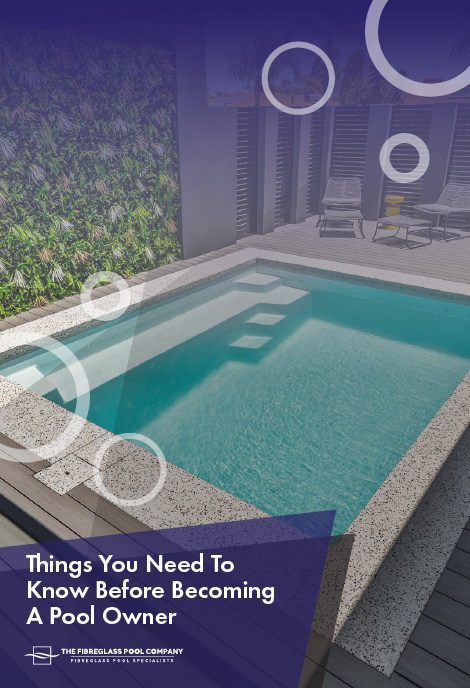
Owning a pool is both a luxury and a responsibility. You can have a private resort at your disposal, but you also commit to a significant element of care and cost. At the outset, it's crucial to distinguish between the romanticism of a personal oasis and the day-to-day reality of maintenance, safety, and environmental impact. While these responsibilities shouldn't dissuade you, they should inform your decision and planning.
Cost Considerations
The Initial Investment
The seemingly endless list of costs begins with the pool’s construction. Depending on factors such as size, location, and materials, you could be looking at a hefty initial investment. Beyond that, there are excavation fees, labour costs, landscaping, and any additional features you wish to include.
Long-Term Maintenance Costs
The cost of maintaining a pool can be a substantial part of your annual home expense. This includes a variety of factors like electricity for filtration and heating, chemical treatments, and regular professional inspections.
Unexpected Repairs and Replacement
Over time, parts of your pool may degrade or break, such as tiles needing replacement or the filter system needing an upgrade. It’s wise to budget for these unexpected expenses ahead of time.
Legal and Permit Requirements
Zoning Laws
Before you even break ground, you must ensure your property complies with local zoning regulations. These laws dictate the types of pools allowed, location on the property, and necessary fencing and enclosure specifications.
Permits
To move forward with building a pool, you’ll need to obtain the right permits. This safeguards you from legal issues and ensures your pool is compliant with safety and environmental standards.
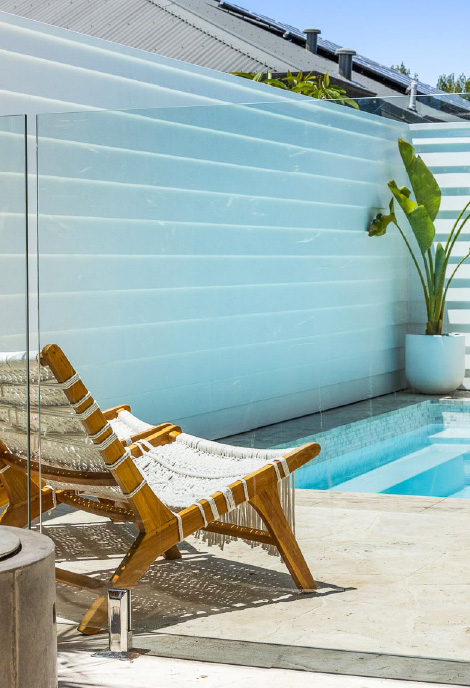
Safety Regulations
Once your pool is in operation, ongoing safety measures are not just good practice—they’re often mandatory. This can include everything from the style and height of your pool’s barrier to the presence of anti entrapment features on any drains.
Types of Pools
In-ground vs. Above-ground
Each type of pool comes with its unique set of advantages and limitations to consider. In-ground pools, known for their durability and aesthetics, represent a substantial long-term investment in your property. On the other hand, above-ground pools, being more budget-friendly, provide the flexibility of being relocated if needed, making them a versatile choice for many homeowners looking to enjoy the benefits of a pool without the permanence.
Materials
Pools can be constructed with a variety of materials, from traditional concrete to fibreglass and vinyl-lined structures. Each has different costs and maintenance needs.
Designs
The shape and style of your pool can transform it from a functional basin to a stunning backyard centrepiece. Work with a professional to bring your design vision to life, while keeping practicality in mind.
Maintenance and Upkeep
Cleaning
Regular cleaning is absolutely vital to maintain the safety and appeal of your pool. It’s crucial to skim the surface regularly to remove any debris, vacuum the bottom to keep it sparkling clean, and occasionally brush the walls to prevent the unsightly buildup of algae and other contaminants. By staying on top of these maintenance tasks, you can ensure that your pool remains a refreshing oasis for you and your guests to enjoy.
Chemical Balance
Understanding the chemistry of your pool is essential. Maintaining proper pH levels, ensuring adequate sanitation with chlorine or other chemicals, and controlling alkalinity all contribute to a healthy pool environment.
Seasonal Care
Your pool will require different levels of maintenance depending on the season. From winterising for cold climates to adjusting for heavy summer use, adapt your care regimen often.
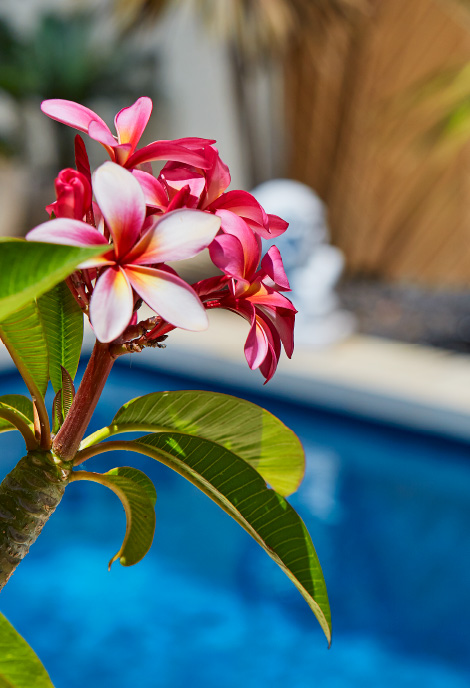
Safety and Liability
Fencing and Enclosure
Most localities mandate that pool owners install a safety fence around their pool to prevent accidental drownings and ensure the well-being of unsupervised individuals. This requirement not only enforces legal compliance but also serves as a crucial safety measure to mitigate the potential hazards linked to swimming pools.
Supervision
Never underestimate the importance of supervision, especially when there are children around. Drowning is one of the leading causes of unintentional injury and death in children.
Insurance
Pool ownership can significantly affect your home insurance. Ensure you are adequately covered, not only for accidents but also for potential damages caused by your pool to your property or others.
Environmental Impact
Water Conservation
Pools can use a lot of water, and in areas prone to drought, this can be a significant concern. Consider water-saving features like covers, and explore options for using greywater.
Energy Efficiency
Modern technology presents a myriad of innovative methods to diminish a pool’s energy consumption. Embracing solutions such as solar covers, energy-efficient pumps, and LED lighting not only contributes to cost savings but also plays a vital role in lessening your environmental impact. By investing in these energy-saving options, you not only enhance your pool’s efficiency but also demonstrate a commitment to sustainable practices.
The decision to become a pool owner is a complex one, but with proper preparation and understanding, it can be incredibly rewarding. You can take ownership of your leisure time like never before, enjoying the health and mental benefits of having your personal venue for relaxation and exercise. Make sure to educate yourself fully on what it means to take care of this unique amenity, and always be mindful of the impacts it may have on your community and environment. A well-informed approach to pool ownership can lead you to many years of aquatic enjoyment.


